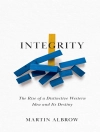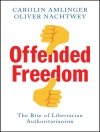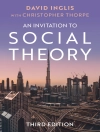On the occasion of the 100th anniversary of the foundation of the Institute for Social Research in Frankfurt am Main, in 1923, this book aims at shedding light on the archives of some of the key thinkers of Critical Theory of Society, also well known as “Frankfurt School”. To pay homage to this current of thought, this contributed volume aims to make the archives speak for themselves, to show the public the quantity of unpublished material still existing by the authors of the Critical Theory which are now in funds in different parts of the world (in Germany, in Italy, or in the United States), and to show that Critical Theory remains alive 100 years after its inception.
The volume starts by presenting the archives of Karl Marx and Friedrich Engels, the thinkers who inspired Critical Theory, and the archives of the Institute for Social Research itself. Then it dedicates separate sections to the archives of Walter Benjamin, Max Horkheimer, Theodor W. Adorno, Friedrich Pollock, Herbert Marcuse, Leo Löwenthal and Jürgen Habermas. The book is composed of chapters written by researchers and editors who worked in the different fonds, as well as chapters written by or interviews with researchers who were or are in charge of some of the archives, or who are especially familiar with the material.
The Archives of Critical Theory will be an invaluable tool for researchers in many disciplines working with Critical Theory of Society, such as Sociology, Anthropology, Political Science, Philosophy, History, Education, Law and Cultural Studies, among others. Readers will find information about the content of each archive and the history of its constitution. The various contributions present many ways in which the materials may be explored and explain how such explorations affected or may yet affect the state of the research.
Tabela de Conteúdo
Introduction.- 1. Re-searching the Archives of Critical Theory.- . Marx and Engels Archive.- 2. Does Anyone Research the Marx-Engels-Nachlass? Archive, Editions, and Theoretical Implications.- . Walter Benjamin Archive.- 3. Into the Walter Benjamin Archive: An Interview with Ursula Marx.- 4. Benjamin Anarchivist.- . The Institute for Social Research Archive.- 5. The Attitude of the German People. The Institute of Social Research Archive as Contemporary History.- 6. The Role of Empirical Research in Theodor W. Adorno’s Thought: a Personal Experience at the Archive of the Institute for Social Research.- . Max Horkheimer Archive.- 7. Working on Cultural Memory. The Estate of Max Horkheimer in the Frankfurt University Library.- 8. The Material Part of Theory. The If S Exile in Geneva and the Correspondence between Max Horkheimer and Juliette Favez..- 9. “Not just the Director, the Methodologist or the Partner: A brief History of the Reception of Horkheimer’s Work”.- . Theodor W. Adorno Archive.- 10. “Adorno and the Archiving of the Ephemeral: Remarks on his Estate”.- 11. Adorno and the Post-War Artistic Debates: a Perspective through the Archives.- 12. T.W. Adorno, H. Becker, and the Challenges of Education in an ‘Administered World’ (1955–1969). Unpublished Radio Conversations from the Theodor W. Adorno Archive.- . Friedrich Pollock Archive.- 13. Symbiosis and Dispersion: The Friedrich Pollock Papers.- . Herbert Marcuse and Leo Löwenthal Archive.- 14. Leo Löwenthal and Herbert Marcuse – Analysis of the Enemy and Volumes from the Marcuse Archive.- 15. Archive Beyond Files: A Brief Note on a Personal Experience in the Marcuse Archive.- . Between Archives.- 16. Critical Theory and Primary Source Research: Subjective Reflections on Working in the Herbert Marcuse and Max Horkheimer Archives.- . Jürgen Habermas Archive.- 17. The Habermas Papers: An Interview with Roman Yos.- 18. Two letters of 1965 between Jürgen Habermas and Karl-Otto Apel.- 19. Letter of July 10, 1978 from Jürgen Habermas to Herbert Marcuse
Translation of the letter.- . Practical Information.
Sobre o autor
Isabelle Aubert is an associate professor of philosophy at the University of Paris 1-Panthéon Sorbonne, and a member of the Institut Universitaire de France. She is the author of Habermas. Une théorie critique de la société (CNRS, 2015). She is the coeditor of Dialogues avec Habermas (CNRS, 2018), Niklas Luhmann: Une théorie générale de la société (Editions de la Sorbonne, 2023), and Adorno: Dialectique et négativité (Vrin, 2023).
Marcos Nobre is a professor of political philosophy at the University of Campinas (Unicamp), and Senior Researcher of the Brazilian Center for Analysis and Planning (Cebrap). He has books on Adorno, Lukács, Hegel, and on Critical Theory more broadly. In 2022, Springer published his Limits of Democracy: From the June 2013 Uprisings in Brazil to the Bolsonaro Government.












